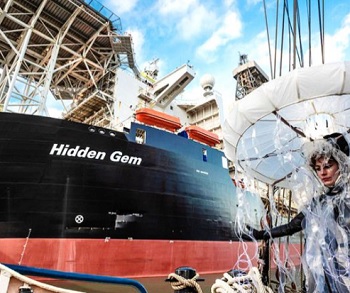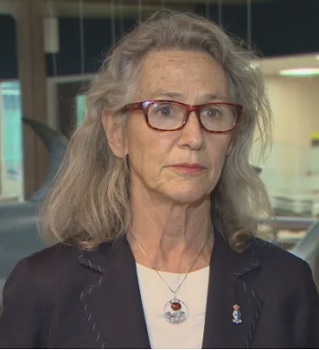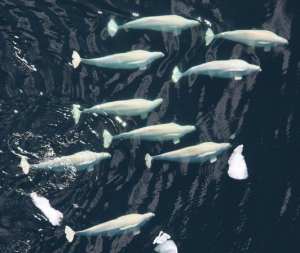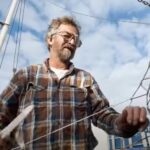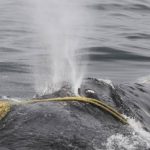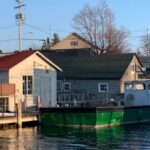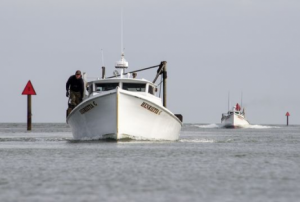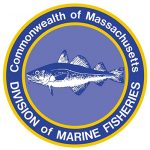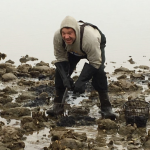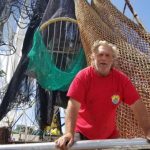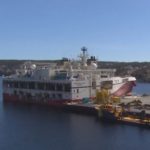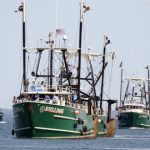Tag Archives: MPA’s
Show Me the Benefits: 10 Years in, What Have Marine Protected Areas Accomplished?
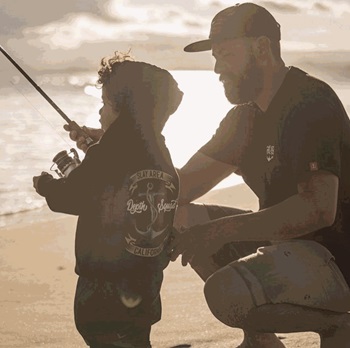 More fish, more sustainable fisheries, and an ecosystem better protected from threats was the promise of the Marine Life Protection Act (MLPA) and the 124 MPAs now in place in California. Ten years on, what have they accomplished? The recently completed 10-year review by the California Department of Fish and Wildlife, as well as numerous scientific papers, suggest that our hopes were misplaced. The review concludes “statewide and regional trends across habitats showed no difference in biodiversity inside compared to outside MPAs.” As to the very real threats to California’s coastal ecosystems, climate change and recent marine heat waves, the review is decidedly not sanguine “analysis across habitats in the central coast revealed that MPAs did not provide strong resilience against the marine heatwave.” Ouch! Finally, there is not even evidence that there are any more fish in California state waters now, except for some of the areas that are closed to fishing. more, >>CLICK TO READ<< 07:00
More fish, more sustainable fisheries, and an ecosystem better protected from threats was the promise of the Marine Life Protection Act (MLPA) and the 124 MPAs now in place in California. Ten years on, what have they accomplished? The recently completed 10-year review by the California Department of Fish and Wildlife, as well as numerous scientific papers, suggest that our hopes were misplaced. The review concludes “statewide and regional trends across habitats showed no difference in biodiversity inside compared to outside MPAs.” As to the very real threats to California’s coastal ecosystems, climate change and recent marine heat waves, the review is decidedly not sanguine “analysis across habitats in the central coast revealed that MPAs did not provide strong resilience against the marine heatwave.” Ouch! Finally, there is not even evidence that there are any more fish in California state waters now, except for some of the areas that are closed to fishing. more, >>CLICK TO READ<< 07:00
MPAs and windfarm proposals labelled an ‘absolute attack’ on the fishing industry
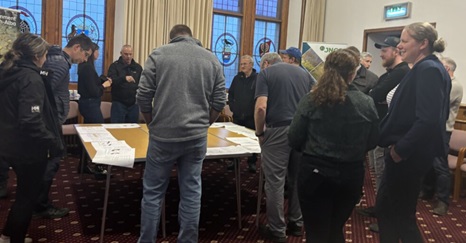 Fisherman have condemned plans to introduce MPAs (marine protected areas) and an offshore windfarm on the isles fishing grounds – with a lack of “evidence” at the forefront of concerns. A public exhibition of the Stoura Offshore Windfarm was held on Thursday at Shetland Museum followed by a drop-in consultation yesterday at Lerwick Town Hall to respond to the MPA proposals. Fears for the future of the fishing industry were heard at both events this week. Skerries whitefish fisherman James Anderson said the MPA proposals will “not do any good at all” and continuously closing off areas poses a significant threat to the sector. more, >>CLICK TO READ<< 06:34
Fisherman have condemned plans to introduce MPAs (marine protected areas) and an offshore windfarm on the isles fishing grounds – with a lack of “evidence” at the forefront of concerns. A public exhibition of the Stoura Offshore Windfarm was held on Thursday at Shetland Museum followed by a drop-in consultation yesterday at Lerwick Town Hall to respond to the MPA proposals. Fears for the future of the fishing industry were heard at both events this week. Skerries whitefish fisherman James Anderson said the MPA proposals will “not do any good at all” and continuously closing off areas poses a significant threat to the sector. more, >>CLICK TO READ<< 06:34
Threat of mobile gear ban in 30% of Scottish waters
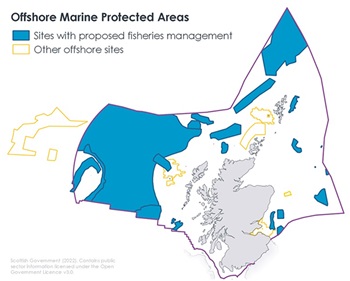 The Scottish government has launched a far-reaching consultation – set to run for just eight weeks – that could see fishing banned from 20 MPAs that cover a third of Scottish waters. As a minimum, it seems set to see five MPAs closed entirely to fishing, with 15 others seeing no-fish zones designated within them. The consultation gives only the option of partial or total fishing bans within the MPAs – it does not allow for a ‘neither option’ response. The government says that a second consultation relating to management and restriction of fishing inside 12nm will follow shortly. For each of the 20 MPAs, a review of fisheries management options, many drafted over a decade ago during the original designation process, is available. These range from the relatively uncontroversial closure of areas such as some deepwater sea mounts that have rarely, if ever, been fished, to much more controversial areas, such as the Central Fladen MPA. more, >>CLICK TO READ<< 16:11
The Scottish government has launched a far-reaching consultation – set to run for just eight weeks – that could see fishing banned from 20 MPAs that cover a third of Scottish waters. As a minimum, it seems set to see five MPAs closed entirely to fishing, with 15 others seeing no-fish zones designated within them. The consultation gives only the option of partial or total fishing bans within the MPAs – it does not allow for a ‘neither option’ response. The government says that a second consultation relating to management and restriction of fishing inside 12nm will follow shortly. For each of the 20 MPAs, a review of fisheries management options, many drafted over a decade ago during the original designation process, is available. These range from the relatively uncontroversial closure of areas such as some deepwater sea mounts that have rarely, if ever, been fished, to much more controversial areas, such as the Central Fladen MPA. more, >>CLICK TO READ<< 16:11
MPA’s: DFO seeks to reassure fishermen after ‘scary’ map released of potential protected areas
 A member of the Fisheries Department’s marine planning group was publicly challenged in Nova Scotia this week to guarantee marine protected areas will not harm the region’s inshore lobster fishery. Marty King appeared Thursday before Argyle municipal council in southwestern Nova Scotia where several areas are under consideration for protection. His appearance followed the release of DFO’s marine conservation network plan — a map with dozens of potential protected sites on the Atlantic coast of Nova Scotia and the Bay of Fundy. King repeatedly stressed coastal conservation areas would have no effect on the lobster fishery. “Hopefully we’re getting the message out more and more that an MPA [marine protected area] doesn’t mean no fishing,” he said. more, >>CLICK TO READ<< 08:49
A member of the Fisheries Department’s marine planning group was publicly challenged in Nova Scotia this week to guarantee marine protected areas will not harm the region’s inshore lobster fishery. Marty King appeared Thursday before Argyle municipal council in southwestern Nova Scotia where several areas are under consideration for protection. His appearance followed the release of DFO’s marine conservation network plan — a map with dozens of potential protected sites on the Atlantic coast of Nova Scotia and the Bay of Fundy. King repeatedly stressed coastal conservation areas would have no effect on the lobster fishery. “Hopefully we’re getting the message out more and more that an MPA [marine protected area] doesn’t mean no fishing,” he said. more, >>CLICK TO READ<< 08:49
France and its fishermen speak out against the United Kingdom and its marine protected areas
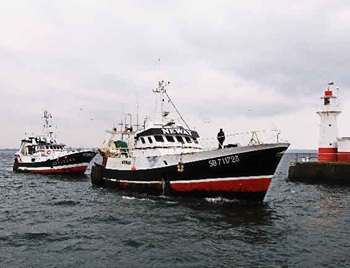 Taking the objectives set by the Kunming-Montreal Agreement at face value, the United Kingdom has strengthened the protection of its marine protected areas. An ecological decision that French fishermen and the Government took for them. France and its fishermen speak out against the United Kingdom and its marine protected areas or “trolling” fishing activities would be prohibited. If this new diplomatic conflict between France and the United Kingdom is far from being the first in the history of these two countries, its cause, the protection of biodiversity, differs from previous ones. On March 22, after a public consultation initiated in 2022, an order (1) published on February 1 by the British government’s Maritime Management Agency (MMO) strengthened the protection of thirteen pre-existing marine protected areas (MPAs). more, links, >>CLICK TO READ<< 08:27
Taking the objectives set by the Kunming-Montreal Agreement at face value, the United Kingdom has strengthened the protection of its marine protected areas. An ecological decision that French fishermen and the Government took for them. France and its fishermen speak out against the United Kingdom and its marine protected areas or “trolling” fishing activities would be prohibited. If this new diplomatic conflict between France and the United Kingdom is far from being the first in the history of these two countries, its cause, the protection of biodiversity, differs from previous ones. On March 22, after a public consultation initiated in 2022, an order (1) published on February 1 by the British government’s Maritime Management Agency (MMO) strengthened the protection of thirteen pre-existing marine protected areas (MPAs). more, links, >>CLICK TO READ<< 08:27
Jersey fishing community ‘fearful’ over proposed marine plans
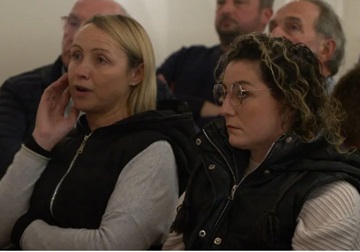
Nathalie Porritt and Gabby Mason say they fear for the future of dredging and trawling boats if proposed plans are implemented
Seven fishing boats in Jersey could be out of business “overnight” if a recommended plan is implemented, members of the fishing community say. The draft Marine Spatial Plan was published in October to recommend ways of protecting the island’s marine environment. Changes to the way the fishing industry could work were made in it, including over the use of boats with mobile gear. Deputy Jonathan Renouf said the plan could “help the fishing industry”. Members of the fishing community came together at a public drop-in session on Thursday to voice their issues. Nathalie Porritt, a fishing merchant at Aquamar Fisheries, said the proposed areas would particularly affect the scallop industry. >>click to read<< 09:49

SNP and Greens face fight on HPMAs as salmon farmers and fishers join forces in ‘Seafood Coalition’
Scotland’s nationalist government is facing a huge fight on its proposal for Highly Protected Marine Areas (HPMAs), amid claims they are being used to appease the Scottish Green Party. The country’s salmon farmers and fishers have joined forces to launch a petition against the move at Holyrood. The ‘Seafood Coalition’ wants to see the plans, which could limit activities such as fishing and aquaculture in 10 per cent of Scottish waters, scrapped. The SNP and Greens claim the zones will “provide high levels of protection” for the marine environment. The coalition includes Salmon Scotland, the Scottish Fishermen’s Federation, Seafood Scotland, Scottish Association of Fish Producers’ Organisations, Community Fisheries Inshore Alliance and Scottish Seafood Association. >click to read< 10:28

Fishing could be finished for me and my young son
Callum Elliott is a fisherman on the west coast of Scotland, but he’s worried about the future for himself and his 18-month-old son Angus. His village of Tarbert in Argyll is built around the harbour and its small boats like Callum’s trawler Sea Spray. Callum, 37, comes from a farming background but felt the calling of the sea from a young age. Ten years ago this week he took out a six-figure bank loan to buy his small trawler but feels there’s now too little support for traditional fishing communities. Cabling from wind turbines, seaweed farming and the presence of military bases have all heaped pressure on the same marine space meaning it’s becoming squeezed. Photos, >click to read< 19:07

Scottish fishing group asks government to ‘radically rethink’ marine protected area plan
SFF chief executive Elspeth Macdonald said the Scottish Government’s blue economy plans “have been hijacked by the Greens and will push the fishing industry into the red.” “On top of the existing spatial squeeze caused by the dash to build huge offshore windfarms with little consideration for their impact on fisheries, the (Scottish) government wants to close a further 10% of our waters to fishing vessels – with no evidence whatsoever that doing so will achieve ministers’ vague conservation aims, nor any attempt to understand the effect of displacing the fishing fleet,” she said. >click to read< 09:42
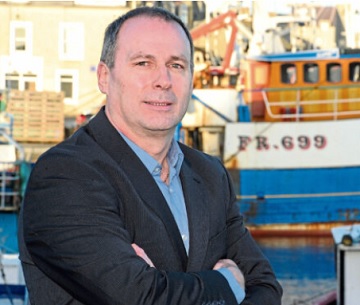
Scottish fishers blast Holyrood for ‘scandalous’ marine policy tantamount to ‘greenwashing’
Mike Park was speaking as the clock ticks down on a Scottish Government consultation on its controversial proposals for Highly Protected Marine Areas (HPMAs). Another industry leader, Elspeth Macdonald, branded the plans as “greenwashing”. And Banff and Buchan Tory MP David Duguid claimed they were “the biggest threat to the north-east fishing industry for decades”. But the government hailed its proposals as “a step change in the protection of our marine environment”. It aims to have at least 10% of Scottish waters designated as HPMAs by 2026. >click to read< 07:45
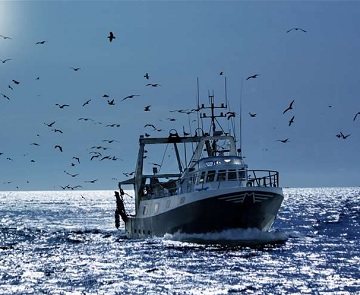
Fishing industry at risk of being ‘put to the sword’ by offshore renewables and MPA’s
The fishing fleet is facing a “truly frightening” future with the prospect of more than half of Scottish waters being off-limits by 2050, a new study has warned. The industry is at risk of being “put to the sword” because of offshore renewable energy developments and the expansion of enhanced marine protected areas, according to the Scottish Fishermen’s Federation (SFF) and National Federation of Fishermen’s Organisations (NFFO). Their report, Spatial Squeeze in Fisheries, produced by the ABPmer consultancy, is described as the first attempt to assess the cumulative impact on commercial fishing of “hugely increased competition for space in the marine environment”. >click to read< 07:55

The Blue Economy: A lawyer and Blue Colonialism.
Nathalie Ros is a lawyer, professor at the University of Tours she is Vice-President and Secretary General of the International Association for the Law of the Sea. In the context of the conference on the oceans to be held in Brest on February 11 and 12, her reflections allow us to measure the stakes of this meeting especially for fishermen. She has developed analyses and concepts which support our own reflections. She thus denounces the privatisation of the oceans in various forms such as transferable quotas, but also the seizure of marine spaces by multinationals in the name of Blue Growth, or the creation of large MPAs banned from fishing in the name of conservation. All this is being done at the expense of fishing: ” the fishing sector, perceived as an obstacle if not a competitor by the new marine industries, is too often seen today as a scapegoat, in defiance of the efforts made by some and reduced to nothing by others. At the same time: “Private actors, often foreigners, can thus benefit from exclusive rights over large parts of the national maritime space, in addition sometimes located very offshore”. >click to read< 10:38
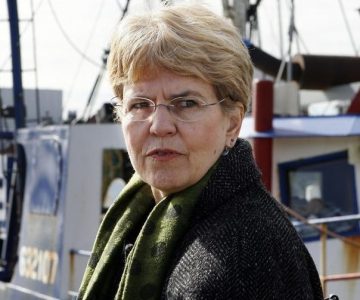
Retraction of flawed MPA study implicates larger problems in MPA science
A retraction is a Big Deal in science, especially from a prominent journal. What’s strange in this story is how the conflict of interest intersects with the science. The conflict of interest was apparent immediately upon publication, but it wasn’t until major problems in the underlying science were revealed that an investigation was launched, and the paper eventually retracted. But with increased press comes increased scrutiny. The critiques pointed out errors and impossible assumptions that strongly suggested the paper was inadequately peer reviewed. Proceedings of the National Academy of Sciences (PNAS) later determined that the person responsible for assigning Cabral et al.’s peer reviewers, Dr. Jane Lubchenco, had a conflict of interest. >click to read< 10:36
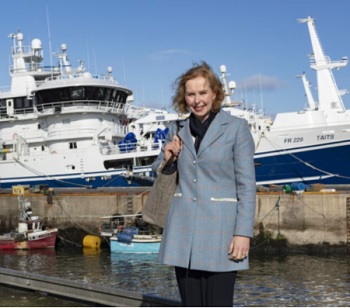
Fishing chief says wind projects bring ‘new challenges’ for Scottish fleet
The fishing industry has a key role to play in the energy transition amid a “spatial squeeze” in Scottish waters. That was the message from Elspeth Macdonald, chief executive of the Scottish Fishermen’s Federation,,, Ms Macdonald said fishers faced competition for territory from a range of other sectors, including aquaculture, oil and gas, and marine renewables. Marine protected areas are also a limiting factor on fishing opportunities, she added. And sea space is about to be “squeezed” even more by a raft of offshore wind energy developments as Scotland pursues its net-zero carbon emissions targets,,, >click to read< 11:36
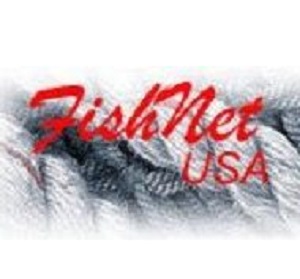
Wind farms: Where are all of the ocean saviors?
The precautionary principle has deep roots finding expression in sayings such as ‘an ounce of prevention is worth a pound of cure’ or ‘better safe than sorry’. The use of the precautionary principle in ecosystem management is especially important,,, Repeated failures of management highlighted by the collapse of northern cod off Canada, the California sardine fishery, and herring, sandeels, blue whiting and capelin stocks in the North Sea have demonstrated the need for this approach in order to help address scientific uncertainty. Yet when it comes to protecting huge swaths of ocean,,, Clog  our near shore and offshore waters with hulking (approaching 1,000 feet tall today, who knows what’s in store for tomorrow?) structures supporting huge rotors with tips moving through the air at velocities approaching 200 miles per hour? So what? Festoon our sea beds with electrical cables carrying huge amounts of electricity, And what of undersea server farms,,, >click to read< 15:43 Nils E. Stolpe/FishNet USA. © 2021 Nils E. Stolpe, July 31
our near shore and offshore waters with hulking (approaching 1,000 feet tall today, who knows what’s in store for tomorrow?) structures supporting huge rotors with tips moving through the air at velocities approaching 200 miles per hour? So what? Festoon our sea beds with electrical cables carrying huge amounts of electricity, And what of undersea server farms,,, >click to read< 15:43 Nils E. Stolpe/FishNet USA. © 2021 Nils E. Stolpe, July 31
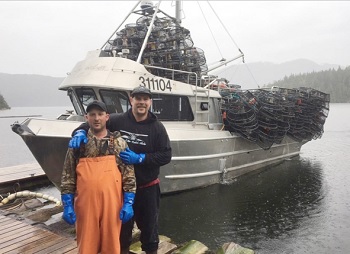
Marine protected areas not all good, says fisherman Lance Underwood, who fears for local fisheries
Underwood, a fisherman in Cowichan Bay on Vancouver Island, sits on the advisory panel for the creation of the marine protected areas and has many concerns about the need for them on the west coast, and their implications for the fisheries. “It is vast, running from central Vancouver Island all the way to Alaska, that will potentially remove thousands of fishermen from these productive and diverse fishing grounds. But the question is, how will it protect Canada’s oceans?” >click to read< 11:05
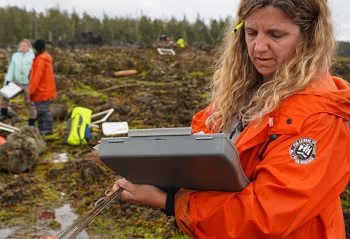
Marine Protected Areas: May or May Not Include Actual Protection
Clearly, a marine protected area is a region of the ocean—and the marine life therein—set aside to be preserved in its natural state, kept safe from human exploitation, right? If only it were that simple. MPAs can involve a spectrum of objectives from allowing sustainable fishing and gathering to protecting biodiversity to conserving sites of scientific or cultural interest. In the end, unless it is created and managed in accordance with globally recognized standards, an MPA is whatever a particular jurisdiction decides it will be. >click to read< 10:43
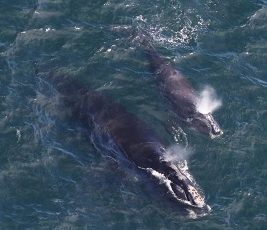
Science Advances report says marine protected areas may not be enough to preserve biodiversity
The paper published Wednesday in the journal Science Advances said climate change will erode the effectiveness of “static” marine protected areas across the globe, and “dynamic ocean management” is needed to preserve biodiversity when species or ecosystems move because of a changing ocean. When the critically endangered whales appeared unexpectedly in the Gulf of St. Lawrence in 2017, the results were disastrous. Twelve right whales whales died and Canada implemented speed limits in shipping lanes and temporary fishing-zone closures. Nine more died this year. >click to read< 09:05

Dear editor: Government going overboard with Marine Protected Areas
The B.C. economy is set to lose hundreds of millions of dollars and few seem to be aware or care about this issue. The issue is the establishment of Marine Protected Areas (MPAs). Few would argue that MPAs can be beneficial, even commercial fishermen.,,, These B.C. fishermen work on the principle of sustainable yield,,,An estimate of the loss to the northern shelf alone ( north of Port Hardy) is $100 million per year! by George Dennis,
Comox >click to read< 15:20
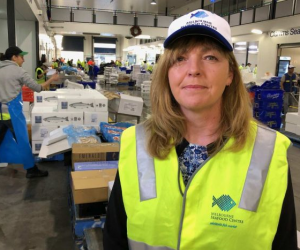
Australia: Fishing group warns of industry pain under Labor’s plan to reinstate marine parks
Ahead of the federal election, Seafood Industry Australia (SIA) has called upon a newly-elected Federal Government to give the fishing industry better security of access and fishing rights. SIA CEO Jane Lovell said a pledge from Labor to reinstate its original 2012 Marine Park Network in full was concerning and would push fishermen out of the industry. Under Labor’s plan Australia would have had the world’s largest network of marine parks which covered offshore waters surrounding every state and territory. “The very fact that this is back on the agenda again removes confidence, increases uncertainty, and this is one of the things that has been found by to be the key driver of the mental health problems in our industry is this constant lack of certainty about the environment they work in,” Ms Lovell said. >click to read<12:03

MPAs – Canada to ban industrial activities inside marine-protected areas
Canada is banning industrial activities inside marine-protected areas (MPAs), including offshore oil and gas development and bottom-trawl fishing, but the prohibition won’t automatically apply to activities in fisheries conservation areas designated as marine refuges. The decision, effective Thursday, also bans ocean mining and ocean dumping in MPAs, which are being created to help meet an international commitment to protect 10 per cent of Canada’s ocean and coastal areas by 2020. >click to read<13:19
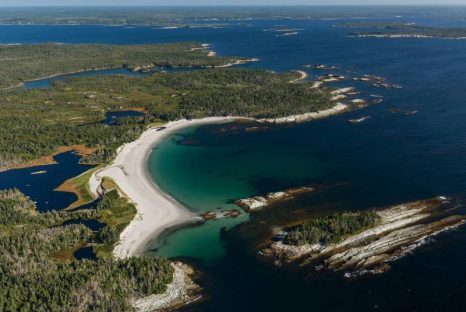
LETTER OF THE WEEK: MPAs an insult to our community
My family obtained Gerard Island on the Eastern Shore in the 1750s. They were fishermen, like many other families, and for hundreds of years kept stewardship of the natural habitat until the present day. There is a two-month lobster fishery here, part of Canada’s top seafood exports worth billions of dollars each year and a key player in the Eastern Shore’s economy. Conservation efforts by our fishery are well documented and have been successful for over 30 years in co-operation with Department of Fisheries and Oceans regulation. >click to read<Andre Gerrard, lobster fisherman, Spry Harbour 10:09
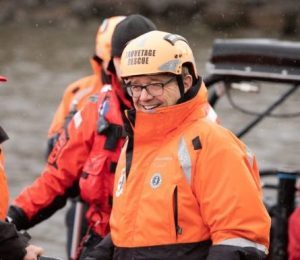
Talking kettles of fish with Fisheries and Oceans Minister Jonathan Wilkinson
iPolitics spoke with Fisheries and Oceans Minister Jonathan Wilkinson earlier this month, on the day before his six-month anniversary at the helm of the department. We asked him about his role, marine protected areas, whales and oil spills, and other issues. This interview has been edited and condensed. Q: You’re half a year in. How’s it been going so far? A: Well, you’ve been keeping better track (of time) than I have. It’s been incredibly interesting and incredibly busy. I have been travelling enormous amounts. Obviously, when someone becomes a new minister in a new area, there’s a huge learning curve, but I’ve really enjoyed it. It’s certainly a challenge; lots of the files are not simple, but it’s been great. >click to read<12:45
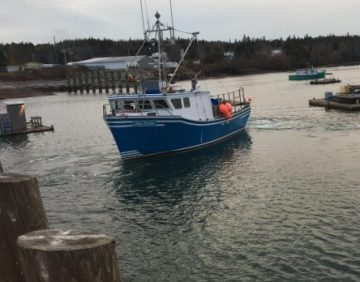
Canada MPA’s – Ban oil, gas, bottom trawling in marine protected areas, urges panel
A panel that has spent the year studying marine protected areas (MPAs) in Canada says no oil and gas development, seabed mining, or bottom-trawling fishing should be allowed within their boundaries. In its final report released Tuesday, the National Advisory Panel on Marine Protected Area Standards, which was created earlier this year by the Department of Fisheries and Oceans, recommended that the federal government adopt International Union for the Conservation of Nature (IUCN) standards and guidelines for all MPAs. That would also make dumping off-limits.>click to read<18:09
MPA’s – Report silent on whether lobster fishing should be allowed – >click to read<15:07
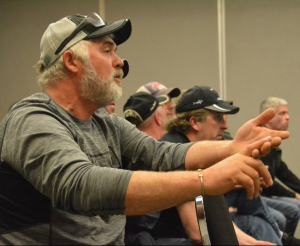
Fishing and seafood industry raises questions and concerns during MPA information session with DFO in Yarmouth
There was a lot of agreement and disagreement when DFO representatives met with the fishing industry to consult and share information about marine protected areas (MPAs) during a recent session in Yarmouth. Many in the room were in agreement that they disagree with aspects of the federal government’s MPA plan and worry about the impact on the fishing and seafood industry. The federal government has committed to putting in place MPAs to help protect species and ecosystems and there national benchmarks have been set out. >click to read<15:53
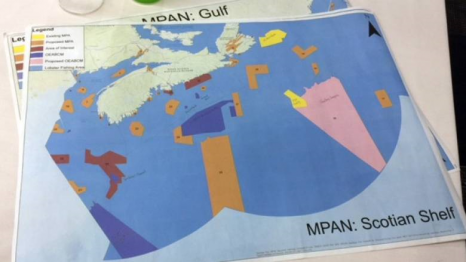
MPAs – DFO will stifle lucrative industry by stuffing fishermen into new eco-box
I never thought I’d become a fisherman growing up. I always wanted something bigger. To make a real difference, you know —so after graduating top 10 in my class at Barrington Municipal High School, off to Acadia University I went, with no real direction, just thinking that there’s got to be something better than fishing out there. It took me three semesters, but I figured it out. There wasn’t.,, Our federal government has made some sort of an agreement on an international level to protect important habitat here off our coast. So I’m thinking, “Great, that’s super news, right? Fish forever, right?” >click to read<11:32






